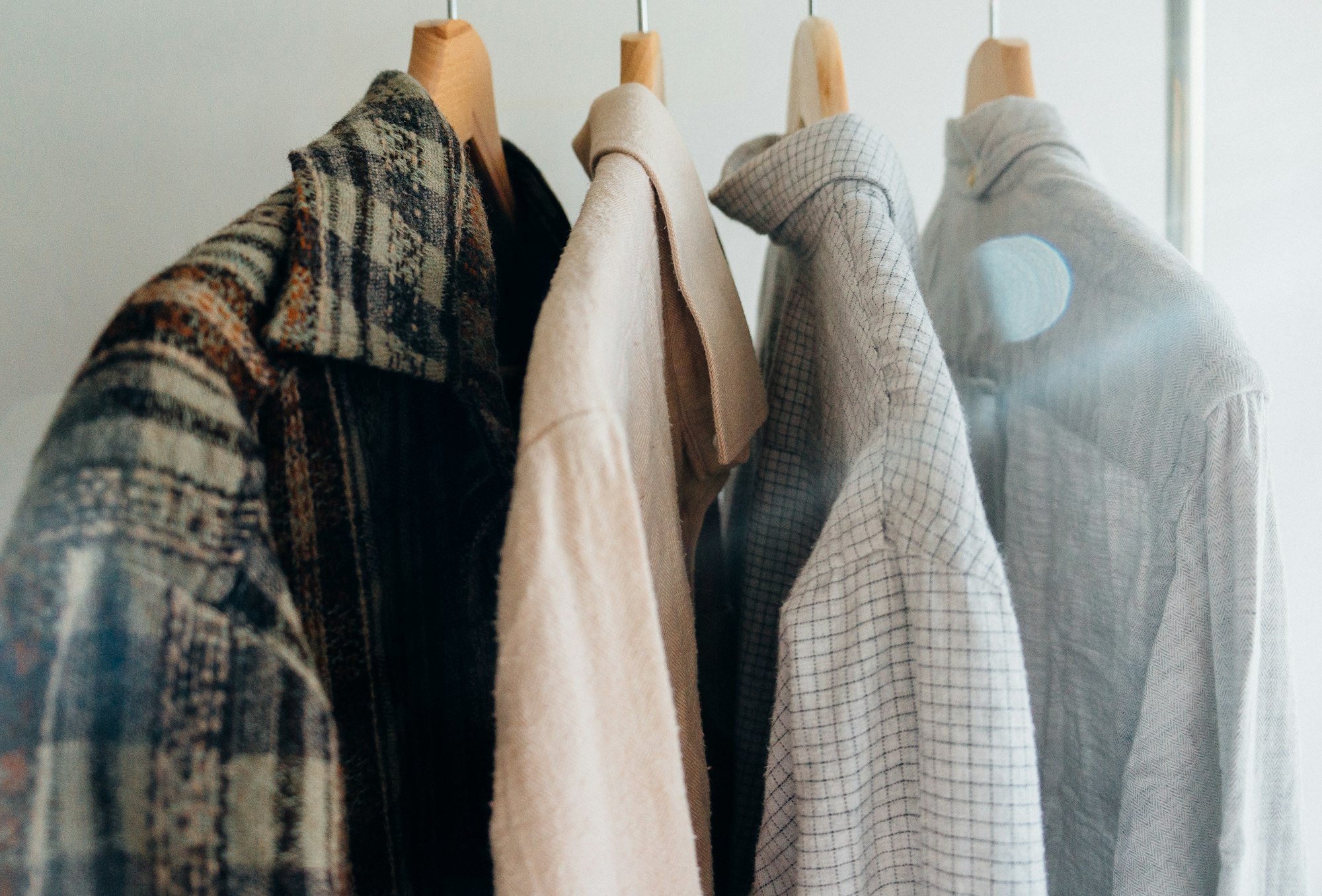5 Fashion Brands That Make Sustainability Stylish
Style and environmental/social substance can coincide, as these brands demonstrate.

Looking good and doing good don’t have to be mutually exclusive. While the fashion industry as a whole doesn’t have the best climate record, sustainable fashion brands are stepping up and driving change.
From using recycled materials to reducing water usage to minimizing the environmental impact of shipping clothes, sustainable clothing companies take many climate-friendly actions. By doing so, they not only help the planet but also differentiate themselves within a crowded industry.
Here, we’ll explore what five of the best sustainable fashion brands are doing to make a difference while capturing customers’ attention.
Some of these top sustainable fashion brands are further along in their eco-conscious journeys than others, and there are certainly other companies that could make claims for being the best sustainable fashion brands. However, the ones here represent a good cross-section of ethical clothing brands that remain stylish while being sustainable.
Allbirds
We know that saving the planet will take more than crossing our fingers and hoping for the best. Good thing we’ve got a plan. Head to our blog to learn more about our goals and focus areas. https://t.co/yULkt8BqPu pic.twitter.com/b5CJFjCkRN
— Allbirds (@Allbirds) July 1, 2021
Walk down a main street in any major U.S. city, and odds are you’ll find someone rocking Allbirds on their feet. This sustainable shoe brand is trendy in terms of footwear and a trendsetter in terms of environmental responsibility.
That starts with using more environmentally friendly materials. Rather than making shoes with common materials like leather, plastic and rubber, which often have large environmental impacts, Allbirds is famous for creating shoes made largely of merino wool. But not just any type of sheep shearing will do.
“We work with leading organizations like ZQ Merino to ensure our wool is held to high standards of farming, land management and animal welfare,” Allbirds states.
Allbirds also uses other natural and sustainable materials like sugarcane, as well as tree fibers that can use less water and have a lower carbon footprint than materials like cotton, the company notes.
But Allbirds isn’t stopping there. The certified B Corporation keeps looking for ways to reduce its environmental impact in areas ranging from material sourcing to using renewable energy to educating consumers about how to care for their products more sustainably. In all, Allbirds is targeting a 50% drop in its carbon footprint by 2025 and a 95% reduction by 2030. Meanwhile, Allbirds has been a carbon neutral fashion brand since 2019 via the use of carbon offsets.
DL1961
DL1961 is a New York-based denim brand that makes stylish, sustainable jeans.
An average pair of jeans uses 1,500 gallons of water, whereas the average DL1961 pair uses less than 10, according to the company. In addition to recycling 98% of its water via an on-site treatment plant, the sustainable fashion brand uses waterless technologies like lasers to create denim effects.
DL1961 also says it owns the largest textile recycling facility in Asia, and it has partnered with “Recover™, a leading material sciences company that transforms waste into sustainable recycled fibers, closing the loop on fashion.”
While DL1961 could arguably provide more transparency into areas like how much recycled fabric it uses, it’s clear that the company has taken many positive steps toward minimizing environmental impact. Meanwhile, it’s one of the most fashion-forward denim companies. “Supermodels are obsessed with DL1961,” notes an InStyle article.
Marine Layer
Marine Layer sells a wide range of attractive, comfortable clothes, ranging from sweatshirts to dresses. The company is also serious about its environmental and social impact.
For example, the brand’s Re-Spun program allows people to drop off or mail in old t-shirts — from any company, not just Marine Layer — and receive a $5 credit per shirt, up to $25.
“The shirts collected are sent to our recycling partners, who turn the old tees into our Re-Spun recycled cotton fabric. Our recycling partners also find other uses for the tees we cannot break down and recycle — like housing insulation, recycled fishing nets, and more,” explains Marine Layer.
So far, the company has collected over 400,000 t-shirts.
Marine Layer also gives back to a variety of environmental and social nonprofits. For example, the company’s Giving Tee initiative directs $15 from each sale of certain “Giving Tees” to non-profits, while the shirts remain in the price range of the brand’s other tees. Some partners have included the Sierra Club and Keep Tahoe Blue, an organization that aims to preserve Lake Tahoe.
The company could go further to disclose its carbon impact, but it’s on the right track with these types of sustainability initiatives. Marine Layer is also a certified B Corp.
MUD Jeans
Not to be confused with Mudd, MUD Jeans is a Netherlands-based company that is arguably one of the most sustainable fashion companies in the world. It may not have the name recognition of some of the other top sustainable fashion brands, but it’s very clear about its impact.
Most notably, MUD Jeans has been a carbon-positive company since 2020, in the sense that it purchases more carbon offset credits than what it emits. But it also focuses on reducing initial impact, with the average pair of MUD Jeans accounting for 74% fewer CO2-equivalent emissions than the industry standard, according to the company.
The certified B Corp reduces its carbon footprint and avoids fast fashion pitfalls through many initiatives. For example, MUD Jeans is working to incorporate more recycled materials into products and partners with suppliers that use renewable energy and energy efficient practices like waterless dyeing.
MUD Jeans also offers an innovative “Lease a Jeans” program, where customers can rent jeans for a monthly fee and then either keep them or send them back to be recycled.
“Our ultimate goal is to make our products 100% circular,” the company says.
Vuori
At Vuori, everything we do is based around the coastal lifestyle. We’re making every effort to protect our seas, including reducing the plastic that ends up in our oceans and landfills. That’s why we’ve created VCycled™. pic.twitter.com/nR5PKIQGBI
— Vuori (@vuoriclothing) June 8, 2021
Rounding out our look at some of the best sustainable fashion brands is Vuori. Sustainable attributes at this athleisure brand include being Climate Neutral certified.
Vuori achieved this certification by measuring its emissions — 96% of which come from its supply chain — and then purchasing carbon offsets. But Vuori's sustainability goals also include reducing emissions, including a 42% reduction in Scope 1 + Scope 2 emissions and a 48% reduction in Scope 3 emissions by 2030 (compared to 2021).
To get there, Vuori is taking steps like using more sustainable materials like “REPREVE polyester made from recycled plastic bottles, ECONYL nylon made from recycled nylon fishing nets and other nylon waste, and Certified organic cotton, grown in clean, healthy soil,” the company states.
The company is also working on reducing its plastic usage, such as by changing how it packages products. And the brand is partnering with CleanHub to fund recycling projects so Vuori can become plastic neutral.
A Good Look
As these sustainable fashion brands demonstrate, it’s possible to create great products that consumers love, both for style and environmental/social substance.
When brands act with sustainability in mind, they can often lower some of their own costs, like energy-related expenses and shipping changes.
Plus, using fair trade materials, adopting animal welfare practices, getting involved in community service and implementing other positive initiatives can lead to more revenue. Many customers care deeply about what brands stand for. It's a good look for brands to show that they're committed to causes that help others too.
Disclosure: Our parent company, JournoContent LLC, has clients involved in sustainability-related areas, among others. The owner of Carbon Neutral Copy, Jacob (Jake) Safane, has investments in sustainability-related companies, among others.
As such, conflicts of interest related to these and other investments/business relationships, even if unintended, may exist at times. Please email info@carbonneutralcopy.com if you'd like further clarification on any issues.
